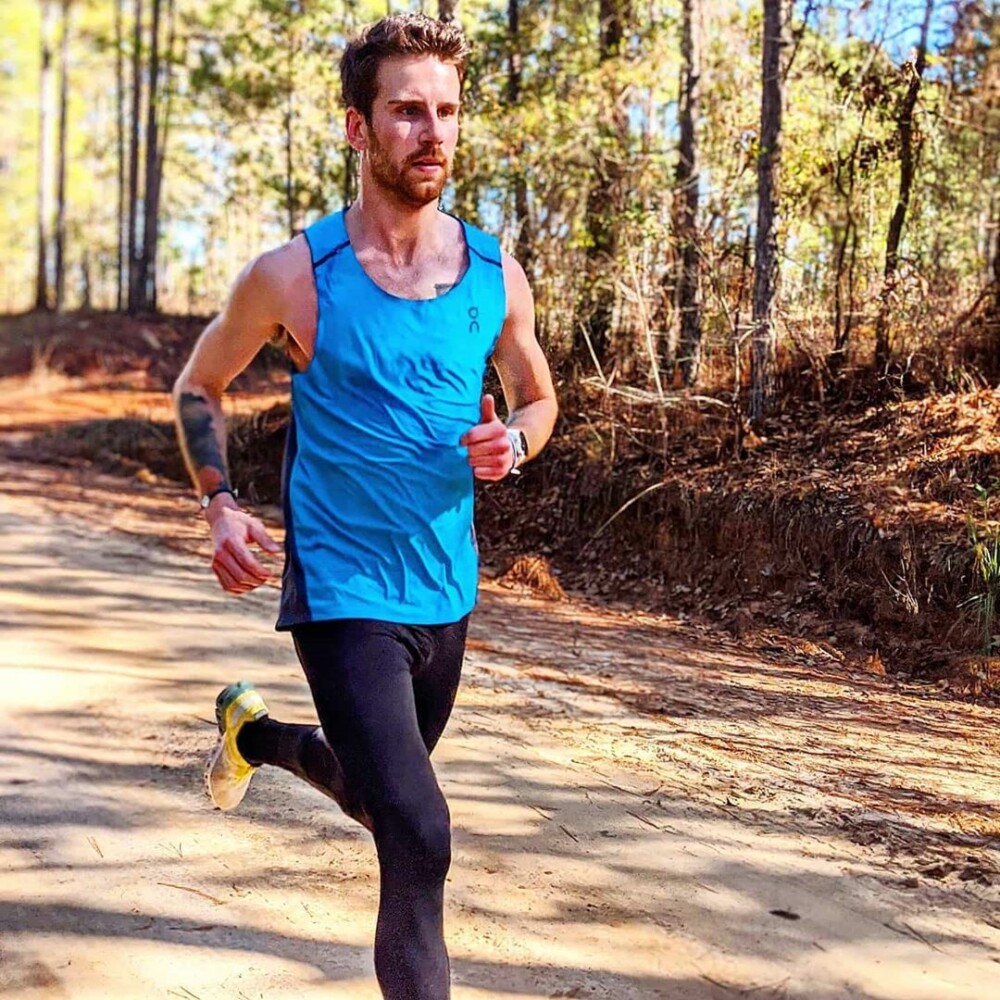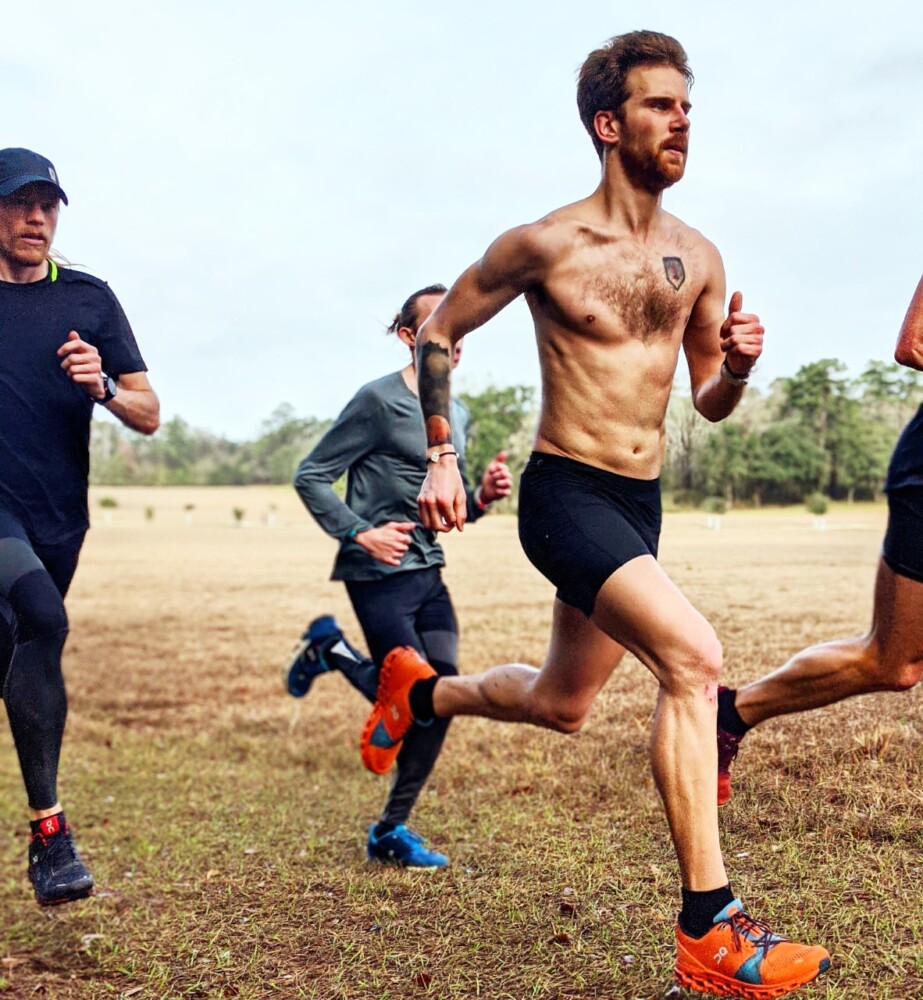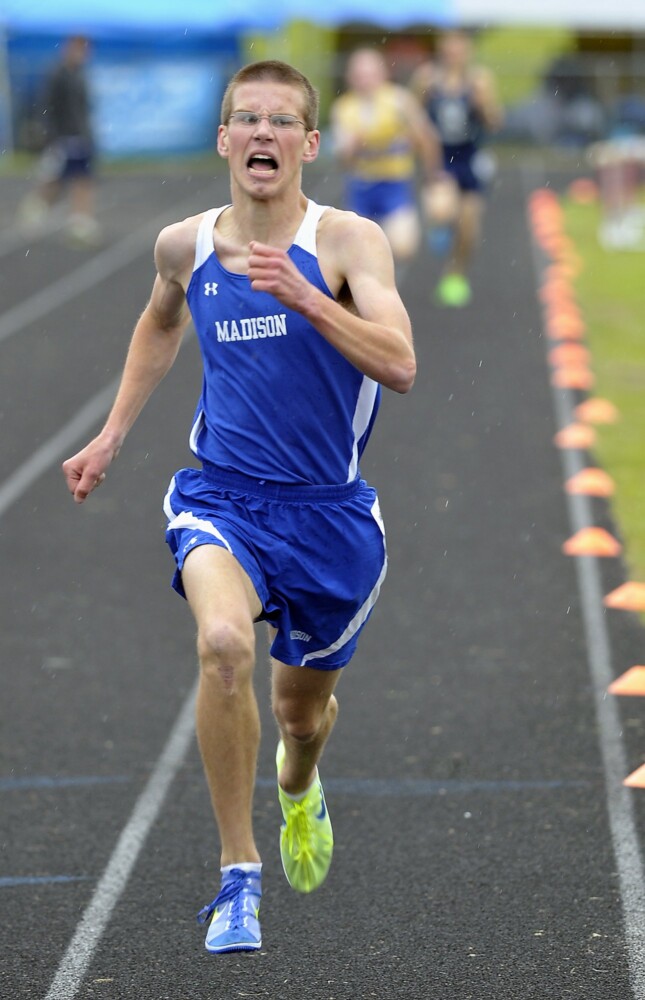Editor’s note: This is the first installment of our new series, “Catching Up With,” in which we reconnect with people we’ve written about over the last few decades.
Matt McClintock isn’t one of those runners that likes to go out for a long, casual jog just to get a workout in.
Instead, there’s something else that keeps bringing the Athens native to the road, or the track, or the trail.

“I’ve always been someone who loves to compete,” he said. “I break runners into two categories. You have the runners who like to run for the sake of running, and they love going out to run, they love the process. And I’m very much in the other category. I love to race.”

Matt McClintock is a 2012 Madison graduate who later ran at Division I Purdue University. Now, the Athens native runs professionally. Contributed photo
That competitive drive carried McClintock through an impressive running career first at Madison Area Memorial High School, then at Purdue University, and finally into the professional ranks, where he’s racing around the country and pursuing Olympic dreams as a distance runner and marathoner for Zap Endurance.
“It has awarded me opportunities to travel places and meet people and experience things that I never would have gotten to experience otherwise,” said McClintock, now 26 and living in Blowing Rock, North Carolina, “and never would have imagined, growing up in a town of 800 people in central Maine.”
Professional running takes McClintock to all reaches of the country, and even to some competitions overseas. The two-time Big Ten champion estimates he runs 10-15 races a year, ranging from 10,000-meter events to half marathons to full marathons. He earned a spot in the Olympic trials for marathon in Atlanta in late February, but was hampered by injury and didn’t finish.
Still, Pete Rea, McClintock’s coach at Zap, said he’s been impressed by McClintock’s ability and approach, particularly in the longer distance events.
“Matt really thrives on competing,” Rea said. “He suffers well, and I don’t know whether that’s just a product of being a Mainer. … That is crucial for being a good long-distance runner, sort of being comfortable with being uncomfortable. Matt’s really good at that.”
Being a part of a team that has shoe and equipment sponsorships has made the financial aspect of running professionally manageable. Zap pays McClintock a stipend, but also covers his housing, meals and travel to and from events.
That allows McClintock to keep his focus on his results.
“It is a job now,” he said. “To some level, I’m in a very lucky position at Zap with what it provides me. I’m not worried about losing my home or not being able to pay for food. … But you race 10 times a year, and going into those races and making money does matter. You do it for fun and love it, but there is that job aspect to it now.”
The job has gotten tougher. With the marathon being McClintock’s best chance at the Olympics, he’s been focusing more on that style of running. He ran his first marathon in 2018, and runs about two marathons a year, in addition to the indoor events he does in the winter and the outdoor track events in the spring and early summer.
But it hasn’t been easy. McClintock ran 2:18:03 at that debut marathon to qualify for the Olympic trials, but scaling all the way up to 26.2 miles has been an adjustment.
“It’s so long and so demanding, it will (reveal) any little weakness that you have, whether that be mental or something like if your Achilles is a little sore,” he said. “I’ve never experienced anything like it. It’s really fun, and you feel really accomplished when you finish it, but it is hard.”

Madison senior Matt McClintock races to the finish line en route to breaking the Class C state record in the 1,600-meter run at the 2012 state championship meet at Cony High School in Augusta. Portland Press Herald file photo
Daunting as the physical challenge becomes, the mental demands can be even tougher.
“Whoever goes out and runs the world record in the marathon, there are points three or four times through that race where you are going to wonder if you’re going to finish,” he said. “Over the course of 26 miles, for probably 16 or so of it, you feel like you’re running very easy. It doesn’t feel particularly hard, until you start getting around 18. There’s just a lot of time to think about what’s going on around you, what’s going on in your own body.”
In recent months, there was a lot going on. McClintock had largely avoided physical ailments during his career until last year, when hamstring, glute and calf injuries interfered with his training and competing. McClintock over-compensated to work his way through one injury, which would then spur pain somewhere else.
“The thing that really helped fix my hamstring and calf was focusing on driving my left elbow back when I run,” he said. “When I wasn’t driving my left elbow, it was torquing me around the right at a weird angle, which was putting a lot of pressure on my hamstring.”
He worked with a specialist for eight months and recovered steadily, but was still ailing when the Olympic trials arrived and had to leave the race after 20 miles.
“It’s unfortunate. It reared its ugly head very early,” Rea said. “I saw Matt at mile 8, and he didn’t look right.”
McClintock admitted he was disappointed. Marathons, particularly Olympic trials, aren’t events a runner can shake off and try again a week later, and McClintock said it was the rust from the injuries, rather than the injuries themselves, that did him in.
Still, he highlighted the positives.
“I’ve never experienced anything like the Olympic trials race,” he said. “It was an eight-mile loop … and the majority of that course, probably six of those eight miles, it was both sides of the road in downtown Atlanta, 10 people deep. I’ve never experienced anything like that support.”
McClintock is confident it’ll serve him well going forward. He’s healthier now than he’s been in months, and he’s looking forward to picking up where he left off — once the coronavirus gives him a chance — and giving the Olympics another crack in four years.
“Everything I do, the running 115 miles a week, all of it is focused on those days, those 10 to 20 times that I’ll throw on a bib and my racing uniform,” he said. “I’m very excited to get that experience again.”
Send questions/comments to the editors.









Comments are no longer available on this story